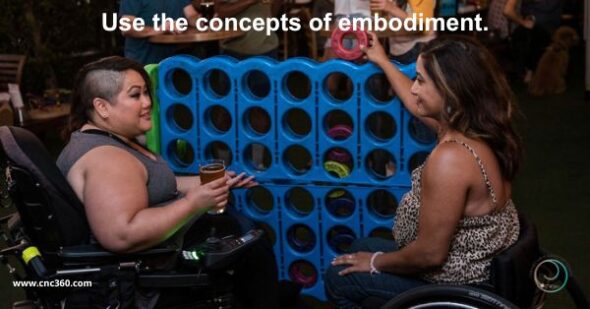Recently I was working with a client who reminded me of the myriad ways in which being in a lighter body is positively reinforced.
Not only did she experience cultural and familial validation for weight loss throughout her development, she also found her way to weight loss as a strategy to help her feel protected and numb from trauma.
This lived and embodied experience makes weight recovery from her eating disorder extremely challenging for her. She wants to recover. She understands the physical devastation happening to her. Yet, despite her remarkable intellect and desire to be well, moving past starvation requires her to acknowledge the distortion in her coding of body image and embodiment. And she must feel that she is in a safe place that will allow her to trust others to help her get well.
When working with this client, I was reminded of the novel, The Unbearable Lightness of Being, by Milan Kundera. This story explores the choices that lead us to an existence in which we find ourselves struggling with the sensory experience of loss. If I remember correctly, the story pivots around the notion that we need relationships to ground us. And that the roots of embodiment are physical, emotional, and political.
The unbearable lightness of being is a phrase that captures the sense of embodied loss.

A child who recovers from a stomach bug often finds themselves uncomfortably light in their body and usually very hungry. What happens to this natural coding for appetite and recovery if the child is praised for their weight loss during an illness? Can this experience describe the insidious process we often hear from our clients who describe a sense of opportunity and delight in weight loss from unforeseen circumstances such as illness or trauma?
When recovery should feel full of rejuvenation and strengthening of embodiment, the reconnection with the healthy self is met with mixed emotions. What an awful setup for feeling disappointed in the process of recovery! An internal conflict forms between a perception of the body and the disappointment that recovery will involve a return to metabolic homeostasis or weight gain. The body wants to restore balance and health, but fears of weight gain can get in the way. This division between mind and body invites disordered eating.
This basic human cycle of injury and repair has been culturally distorted so that weight loss, even from being sick, is idealized over a return to the usual self. Over time, this experience can lead a vulnerable person to feel like their “sick” self is of more value to others.
In its fundamental essence, “the unbearable lightness of being” may be a more apt description of the human experience.
In cultures where thinness and weight loss are not idealized, people express concern for their “lightness” and a desire to “get healthy” again. They tend to hide their weight loss from others so as not to elicit concern. Even children who have yet to be influenced by diet culture feel uncomfortable and sometimes scared by their smaller body and their sense of being weaker.
Dietitians at CNC often use concepts of embodiment in our work because it is relevant to the experiences that inform how people think about and feel in their bodies. This may include slowing a conversation down to examine some of the unconscious assumptions and beliefs that we have absorbed from a weight-centric diet culture.
Here are some questions that might help you assess your embodiment experience:
- What environments or relationships allow you to feel comfortable in experiencing the world through your body?
- How would you describe the wisdom of your body?
- Do you feel safe in your body?
- How comfortable are you finding pleasure and enjoyment in your body?
- Do you sense your body as a source of pleasure and enjoyment?
- Do you sense your body as a source of strength and power?
- Do you find your body is a source of creativity and expression?
- Do you sense your body is a source of connection and intimacy?
Please feel free to reach out to us and one of our dietitians can assist you.
